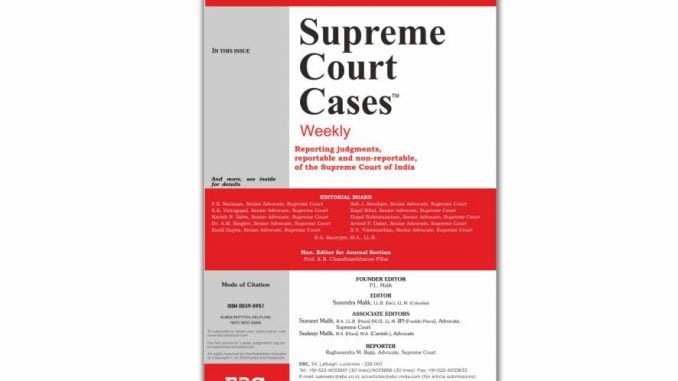

In Part 1 of Volume 8 read this seminal decision on the validity of ‘Maratha Reservation’ delivered by a five-Judge Constitution Bench of the Supreme Court expertly analysed by our editors. The Court has held that the Maratha community was not entitled to the reservation as socially and educationally backward class (SEBC), and it was not a case of an extraordinary situation or exceptional circumstance to provide reservation to Marathas by exceeding 50% upper limit or ceiling on reservation as laid down in Indra Sawhney case.
It was expressed that for exceeding reservation beyond 50%, extraordinary circumstances as indicated in Indra Sawhney, 1992 Supp (3) SCC 217, must exist for which extreme caution is to be exercised.Constitution of India — Arts. 16(4), 15(4) and 15(5) — Reservation — Extent to which permissible: Maximum upper limit of 50% reservation as laid down in Indra Sawhney, 1992 Supp (3) SCC 217, binding under Art. 141 and has to be implemented. As there were no grounds to refer Indra Sawhney case to a larger Bench, prayer for the same, rejected. S. 2(j) of the MSEBC Act, 2018 insofar as it declares Marathas as socially and educationally backward class (SEBC), held, ultra vires the Constitution and struck down. Ss. 4(1)(a) & (b) of the MSEBC Act, 2018 as amended in 2019 granting 12% and 13% reservation for Maratha community in addition to 50% social reservation in educational institutions and public services in State of Maharashtra, declared ultra vires to the Constitution and struck down. [Jaishri Laxmanrao Patil v. State of Maharashtra, (2021) 8 SCC 1]
[“source=scconline”]
